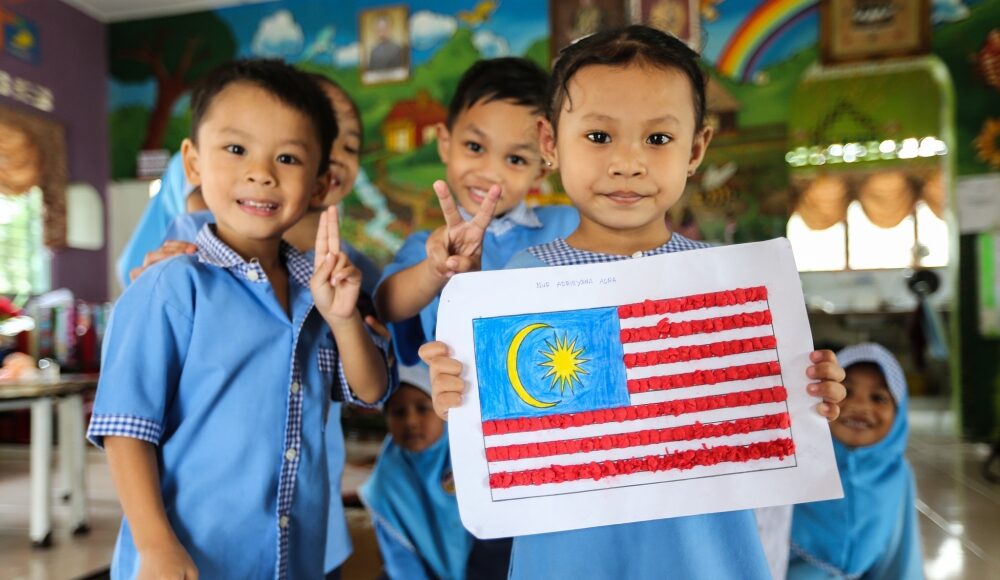MARCH 29 — On April 21, 2025, students across Malaysia will add a new emblem to their uniforms—the Jalur Gemilang badge.
As per the Ministry of Education’s directive, every student in government schools, government-aided schools, matriculation colleges, and Institutes of Teacher Education (IPG) will wear the badge proudly on the right side of their uniform, parallel to their name tag.
The government will provide two badges for each student, and they must remain unaltered, free from embellishments.
The initiative is designed to instil patriotism and national pride in young Malaysians—a noble goal, no doubt.
But here’s the question: Is patriotism something we wear, or is it something we do?
There’s no denying the power of symbols. The Jalur Gemilang, with its vibrant stripes and crescent, represents unity, progress, and Malaysia’s diverse identity.
But patriotism — true, deep-rooted love for one’s country — goes beyond the symbolic.
It is cultivated through action, through a lived experience of contributing to something bigger than oneself.
And the best way to foster this is not just through visual representation but through meaningful participation in shaping Malaysia’s future.
Instead of limiting our efforts to outward displays of national pride, why not focus on substantive interaction? This is where volunteerism comes in — not as a mere extracurricular activity, but as a vital force in nation-building.
When young people roll up their sleeves and work together towards a common cause, they don’t just learn about patriotism; they live it.
They begin to see Malaysia not as an abstract entity but as a shared responsibility, where every action contributes to the well-being of the collective whole.
Of floods and ‘rewangs’
Consider what happens when disaster strikes. In December 2021, when torrential floods devastated parts of Selangor and Pahang, thousands of families were left stranded, their homes submerged in murky waters.
The immediate need wasn’t symbolic gestures or motivational slogans — it was action. And it was young Malaysians, many of them volunteers from organisations like Team Selangor, who showed up.
Armed with cleaning equipment and an unshakable sense of duty, these volunteers entered mud-caked homes, salvaging belongings, scrubbing walls, and offering comfort to victims.
They waded through floodwaters not just because they were assigned the task, but because they understood that patriotism means standing by your fellow Malaysians when they need you the most.
This is the kind of national pride that leaves an imprint — not just on uniforms, but on hearts and minds.
And if there’s one thing that has long embodied the spirit of Malaysian unity, particularly the Malay communities, it is the practice of rewang — a communal gathering where people cook, clean, and prepare for major events together.
Traditionally, rewang was a way to bring villages closer, especially during weddings or celebrations. But today, it has evolved into something more — a proof to our collective spirit.
In recent years, Team Selangor has reintroduced rewang activities in community-driven projects, proving that the old ways still hold immense value.
Whether it’s preparing bubur lambuk for the community during Ramadan or organising gotong-royong clean-ups with local youths and elders, these initiatives reinforce the idea that nation-building isn’t just a job for policymakers — it’s a duty shared by every citizen.
Through rewang, young people experience first-hand what it means to work together for a common goal.
They learn that patriotism is not just about loving one’s country in theory but actively participating in its progress.
A flag pin on a uniform might remind us of our unity, but rewang ensures that we truly feel it.
Actionable solutions
While initiatives like the Jalur Gemilang badge campaign are well-intentioned, they should not be the end goal.
Patriotism cannot be cultivated through compulsion alone; it must be nurtured through experience.
We must empower young Malaysians with real opportunities to contribute, collaborate, and create change.
Let’s ask ourselves: What if every school incorporated community service into its curriculum — not as an optional club, but as a core component of education?
What if every university required students to participate in nationwide volunteer projects before graduation?
What if corporate social responsibility efforts focused less on one-off donations and more on long-term community partnerships that involve young people at every stage?
These are the questions that need answering. And as we move forward, we must remember: A badge on a uniform may remind students of their identity, but it is their actions that will define the nation they inherit.
Malaysia’s youth are not just the leaders of tomorrow — they are the changemakers of today. They don’t need reminders of their identity; they need avenues to shape it.
So instead of stopping at symbolic gestures, let’s invest in programs that allow them to see, feel, and experience patriotism in its truest form.
After all, a love for one’s country isn’t about what we wear. It’s about what we do.
* Sadina Suffian is Treasurer of Bersih, and COO of Team Selangor. Team Selangor is an outfit under the Menteri Besar’s office focusing on youth empowerment and volunteerism.





